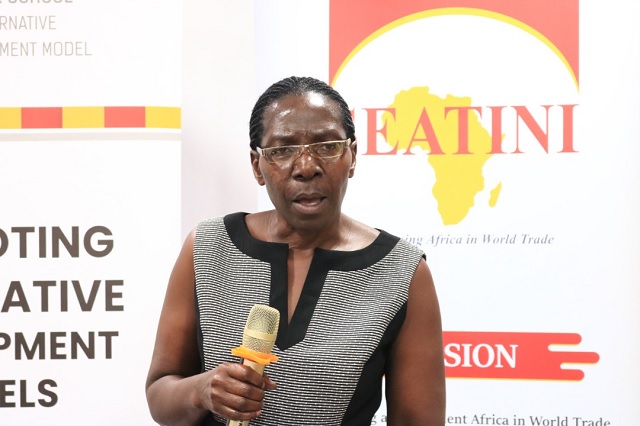
Kampala, Uganda | JULIUS BUSINGE | Africa needs to find its own solutions to find a win in transiting from the use of fossil fuels to renewable energy sources.
This is the summary of the paper titled; “Understanding of the energy transition from an Afrocentric perspective,” written by Brendah Akankunda, Jane Nalunga and Judith Muvara, from Southern and Eastern Africa Trade Information and Negotiations Institute (SEATINI Uganda).
Climate activists continue to discourage the use of fossil fuels like coal, natural gas and oil, arguing that they are a danger to the environment. They encourage the use of renewable energy that is; hydropower, solar and wind which are environmentally friendly.
Discussed at a meeting on Nov.16 in Kampala, the SEATINI paper says, there is a need to increase investment in the energy sector with the understanding that this will not only increase supply and access to energy, but that it will also resolve the challenge of limited affordability.
The discussion came amidst similar calls from COP27 – UN Climate Summit happening in Egypt from Nov.6–18 to build on the outcomes of COP26 to take action and tackle the climate emergency.
“Many private energy investors are not interested in investing within the rural areas owing to questions about the rate of return on investment. Without state intervention, such areas may never access electricity despite Africa’s promising potential for the exploitation of a wide range of renewable energy resources for energy production and the provision of energy services,” the paper adds.
Experts say, energy access for all is one of the key drivers of inclusive growth as it creates opportunities for all people.
But the African Development Bank says over 640 million Africans have no access to energy, corresponding to an electricity access rate for African countries of only 40%, the lowest in the world.
Trouble causers
A report from the Global Carbon Project indicates that for the period of 1850-2021, the United States cumulative carbon emissions amounted to 24%, the European Union to 17% and China to 14% of the world total emissions.
On the other hand, Africa’s contribution to the global greenhouse gas emissions has fluctuated between 3.4% and 3.8% in the last two decades contributing the smallest share among the world regions.
Unfortunately, Africa which is already grappling with high levels of poverty and food insecurity continues to suffer the most effects of climate change despite the fact that it contributes the smallest share of the carbon emissions.
The energy transition is anchored on the existing economic development model, hence reinforcing the commodity dependence of Africa.
According to the paper, if Africa is to seamlessly transit, it requires to import the resources for the transition from the Global North.
“As it turns out, China owns the vast majority of the world’s solar panel supply chain, controlling at least 75% of every single key stage of solar photovoltaic panel manufacturing and processing. This implies that Africa continues to be commodity dependent if it is to rely on the use of solar panels to power its industrialization.
Solutions
The paper says, African scholars and decision makers should design a just climate transition attuned to the continent’s realities to provide a framework for domestic policies and relations with external partners, such as the European Union.
Such a conceptualization would marry Africa’s development needs around quality jobs, sustained growth, and economic transformation with addressing climate change.
It also says, African countries should develop their own overarching vision around climate action. At the continental level, it adds that it is imperative to finalize the African Union’s climate action plan, which sets common principles for member states. Sector-specific strategies in areas such as mining, biodiversity, the circular economy, and agriculture should be updated.
The other recommendation is that for Africa to reduce the technology and financial dependence in the effort to transit, it needs to finance its own transition and this can be achieved through the reliance on its critical minerals and the beneficiation through the Africa mining vision so that Africa is not just looked at as a resource hub.
“Africa requires a cumulative source of energy to close the 55% gap and this can be achieved if Africa explores all the sources of energy so as to increase the access, affordability and availability of Energy resources and to ably power her industrialization,” the paper concludes.
 The Independent Uganda: You get the Truth we Pay the Price
The Independent Uganda: You get the Truth we Pay the Price



